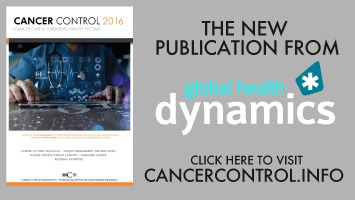Abed Alra’oof Saleem, Director, Quality Planning Department, Ministry of Health, Palestine; Dr Musa Hindiyeh, Director of Caritas Baby Hospital Clinical Laboratory, Bethlehem; Dr Ali Ahmed Sabateen, Head, ID Unit, Augusta Victoria Hospital, East Jerusalem; Dina Nasser, Nurse; Dr Rabee S A Adwan, Al Makassed Hospital, East Jerusalem; Lisa Dolan-Branton, Senior Improvement Advisor, USAID; Jennifer Ross, Lecturer, Robert Gordon University, Aberdeen UK, Ghazaleh Samandari and Sarah Kauder, Improvement Specialist, USAID ASSIST
While life expectancy and mortality indicators in the Palestinian Territories have improved since 2010, hospitals across the West Bank and Gaza are experiencing an alarming surge in antibiotic resistance due to a lack of standardized infection prevention and control processes and systems. Combined with a dearth in uniform microbiology protocols and processes within the Palestinian Health System, hospital-acquired infections (HAIs) pose a serious public health risk. This short article describes a newly launched learning collaborative led by the Ministry of Health, with support from the United States Agency for International Development, to embed stronger infection prevention and control practices in 13 public and nine private hospitals in the West Bank and institutionalize a system to reduce hospital-acquired infections.
At first glance, health indicators in the Palestinian Territories imply long-term positive gains in healthcare. Overall life expectancy is 75 years for females and 72 years for males. The infant mortality rate declined from 25.5 per 1,000 live births in 2000 to 10.9 per 1,000 live births in 2015. Similarly, the under-five mortality rate declined from 28.7 per 1,000 live births in 2000 to 13.9 per 1,000 live births in 2015 (1). In fact, despite limited resources, the leading causes of death in this population are noncommunicable diseases, such as cardiovascular disease, cancer, cerebrovascular disease, and diabetes.
However, these positive indicators belie a growing surge in antibiotic resistance due to a lack of standardized infection prevention and control processes and systems. Combined with a dearth in uniform microbiology protocols and processes within the Palestinian Health System, hospital-acquired infections (HAIs) pose a serious public health risk across the Territories.
In fact, HAIs have reached alarming levels across the Palestinian Authority West Bank (WB) and Gaza, with no signs of improvement. Physicians at Augusta Victoria Hospital (AVH), part of the East Jerusalem Hospital Network, have noted very high rates of multiple drug-resistant HAIs among patients referred from the hospitals across Palestine. A study conducted on patients referred to AVH from MOH hospitals showed high levels of Methicillin-Resistant Staphylococcus aureus (MRSA) and Vancomycin-Resistant Enterococcus (VRE), among others. In a series of studies, Dr Musa Hindiyeh and his team at Caritas Baby hospital in Bethlehem collected samples in collaboration with several WB hospitals. They found presence of multiple antibiotic-resistant bacteria, including MRSA, VRE, Vancomycin VISA, Carbapenem-Resistant Enterococcus (CRE), and multidrug- resistant (MDR) Acinetobacter (2). These infections are placing a heavy burden on the entire health system.
Purpose
Together with Ministry of Health officials, infection prevention control (IPC), and infectious disease specialists in the West Bank, a United States Agency for International Development (USAID) project worked to create a long-term strategy for reducing HAIs and implementing antimicrobial stewardship through a robust, technology-exploiting learning network using quality improvement methods and tools to drive creation and improvement of health systems and processes.
Intervention
Systems assessment
The first step towards improvement was to review with the Ministry of Health its information about the capacity of the existing health system in the West Bank. Several key characteristics of the Palestinian health system indicated potential areas for enhancement of HAI control processes. First, the MOH has had a robust policy-making and patient safety programme in place since 2011. They recently published a new IPC policy manual to guide infection control practices across Palestine. The availability of a network of staff certified in IPC and quality improvement practitioners at each MOH hospital also indicates a robust starting point for improvement. The Patient Safety Friendly Initiative and national quality standards are also helping to drive improvements in several MOH and private hospitals with common goals and indicators. Several certified Patient Safety surveyors have been working to assess and support sites’ progress, and their medical laboratories have accreditation in ISO standards. Despite these important investments in infrastructure and supportive programming, many essential elements of IPC and antimicrobial stewardship remain to be institutionalized.
Embedding QI through a Learning Collaborative
An opportunity to enhance the existing efforts of the Palestinian Authority Ministry of Health and the East Jerusalem Hospital Network was found through the USAID Applying Science to Strengthen and Improve Systems (ASSIST) Project, a worldwide healthcare improvement activity.
Rather than a short-term, narrow focus, the design team of national and international experts, led by USAID ASSIST, decided to use a Learning or Improvement Collaborative to embed stronger IPC practices in participating hospitals. The theory of change with the aim to reduce HAIs by 20% in eight months focuses on strengthening the foundations of IPC and laboratory standardized protocols and processes to identify HAIs and multidrug-resistant organisms (MDRO), as well as implementing elements of antimicrobial stewardship. This improvement collaborative brings together 13 public and nine private hospitals in the West Bank, all aiming and measuring to accomplish the same objective, through a facilitated shared learning approach with peer-to-peer learning as well as supportive coaching by experts. The learning network has both face-to-face, action-oriented learning sessions with teams learning new skills and content as well as sharing their current work with other participants. Coaches visit the QI teams monthly to support their processes of change and build skills in real time. Hospital teams interconnect through regular Extension from Community Healthcare Outcomes (ECHO), telemedicine-type video calls for QI coordinators, hospital teams and laboratory staff. They have rapid pace WhatsApp Groups where they can share frequent updates on their tests of change and results, ask questions of each other and of the external technical adviser team. Another unique facet of this strategic effort is building leadership skills for change in patient safety. With these three parallel tracks focused on strengthening clinical QI teams, laboratory microbiology and leadership for patient safety, the initiative has the right pieces in place to succeed.
Outcomes
The collaborative is still in its early stages. Findings will be shared across the Middle East region for possible application in complimentary efforts in other countries.
Biographies
Dr Rabee S A Adwan is an infectious disease specialist leading the infection prevention and control committees at Al Makassed Hospital and Istishari Arab hospital. He completed his Bachelor’s degree in Medicine from Jordan University of Science and went on to do his pediatric residency at Al Makassed hospital. Dr Adwan was elected by the Palestinian Pediatric Society for a two-year Fellowship in Pediatric Infectious Diseases (ID) at the University of Toronto, Hospital for Sick Children, and completed a one-year training in adult ID. Recently, he became a member of the Arab Countries Infection Control Network.
Dr Ali Ahmad Sabateen is an Infectious Disease (ID) specialist, currently the Head of the ID unit at Augusta Victoria Hospital (East Jerusalem) and leads their infection prevention and control committee. He studied medicine at Rostove State Medical University in Russia and did a Fellowship in ID and Clinical Microbiology at Hadassah Hospital. He has set several local guidelines, including preoperative antibiotic prophylaxes, UTI, soft tissue infection, neutropenic fever and mucositis.
Dr Musa Hindiyeh is the Director of Caritas Baby Hospital Clinical Laboratory and Infection Control Program and a founding member of the Palestinian Forum for Medical Research (PFMR). He obtained his Bachelor’s degree in Clinical Laboratory Medicine and his PhD in Microbiology and Immunology from the University of Arkansas for Medical Sciences in the United States. He did a post-doctoral Fellowship in Diagnostic Microbiology and Public Health at the University of Utah. Dr Hindiyeh has double American board certifications in clinical laboratory medicine and in diagnostic microbiology (ASCP and Diplomat ABMM). He currently serves on the editorial board of the Journal of Clinical Microbiology (JCM) and The International Arabic Journal of Antimicrobial Agents (IAJAA). In addition, he is an adviser for the Clinical and Laboratory Standard Institute (CLSI) on Specimen Collection and Transport. Dr Hindiyeh’s interests include bacterial drug resistance, characterization of respiratory and gastrointestinal viruses and infection control.
Dina Nasser, RN, MPH, has 30 years of clinical experience in the Palestinian health system and in the capacity building of health professionals. She has a post graduate specialization in operating room nursing from the United Kingdom. Her work in the Palestinian health system has led to the development of infection control programmes and standards within operating rooms in three main tertiary hospitals, as well as national protocols and guidelines for infection prevention that have been endorsed by the Ministry of Health.
Jennifer Ross, RN, MSc, SPSP Fellow (2010–2011), has a clinical background in acute nursing, making the move to patient safety 10 years ago. She completed her MSc in Patient Safety, A Clinical Human Factors Approach, at the University of Aberdeen in 2012 and lectures at Robert Gordon University in Aberdeen, United Kingdom. She is also an independent improvement consultant, currently working with the USAID ASSIST project in the West Bank focusing on the reduction of HAIs.
Lisa Dolan-Branton, RN, BSN, joined the University Research Company’s Quality and Performance Institute in November 2015. She is serving as a Senior Improvement Advisor on the USAID Applying Science to Strengthen and Improve Systems (ASSIST) project. She has designed and implemented country-wide improvement projects across sub-Saharan Africa and the Middle East. Previously, Lisa spent 25 years in the United States Public Health Service Commissioned Corps as a clinical nurse and programme director focused on improving care for rural, underserved and vulnerable populations.
Sarah Kauder, BSc, MPH, currently works as an Improvement Specialist on the USAID ASSIST Project at the University Research Company supporting quality improvement efforts in the programme areas of maternal, neonatal and child health and health workforce development, in addition to supporting efforts in the Middle East Region. She serves as Project Coordinator on the West Bank/Gaza activity to reduce hospital acquired infections. Holds a BSc in Life Science in 2010 from Penn State and an MPH in International Health and Development from Tulane University in 2013.
References
1. Ministry of Health, Palestinian Health Information Center (PHIC), Health Annual Report Palestine 2015; October 2016.
2. Hindiyeh, Musa. Status of drug resistant bacteria in a cohort from Palestine. Presentation on findings from the Caritas Baby Hospital. 2017.



